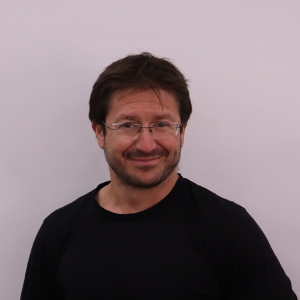
Alejandro M. Gómez-San-Juan
Member
PhD in Aerospace Engineering by Universidad Politécnica de Madrid. He is since April 2021 an assistant professor at the University of Vigo and has been working at the ATRG. During the previous ten years, he has worked as an aerospace engineer specialized in thermal and structural engineering at the Ignacio Da Riva Microgravity Institute. He has been in charge of design, analysis and verification in both fields. He has also researched on “Uncertainty Calculation of Spacecraft Thermal Control Systems” as part of his PhD thesis. He developed all these activities in a series of international missions that have involved working with some space agencies such as ESA, Roscosmos, the Chinese CNSA and NASA.
From 2011 to 2021, he has been a researcher at IDR, focused mainly on (but not limited to) spacecraft thermal and structural engineering. Among his performed activities in these fields:
- Space Thermal Control: all kinds of activities related to thermal analysis and design, from the initial to the final phases of the missions, and some additional tasks:
- Design of the thermal control system.
- Thermal mathematical model building: including external/internal units and micro satellites in ESATAN.
- Thermal analyses in a variety of different environments including LEO, Mars orbit, Mars atmospheric environment, Sun orbit, lunar surface, Venus Fly-by… in ESATAN.
- Pre-test activities: sensitivity and uncertainty analysis, test predictions.
- Test campaign activities: preparation and design of vacuum and thermal balance tests, assistance to the execution of tests, and all associated documentation activities (procedures and reports).
- Post-test activities: correlation of thermal models.
- Project reviews: as analyst, preparation of documentation, models and attendance to ESA design reviews. As part of Project Office, revision of documentation in internal design reviews. All in the framework of ESA activities.
- Extensive experience in the use of ECSS (European Spatial Quality Standards).
- Coupled analyses with other subsystems: thermo-elastic analyses (mainly high precision optical instruments) and thermo-electric subsystem coupled analyses.
- PhD thesis on the analysis of sensitivity and uncertainties, including stochastic analysis.
- Structural Analysis: all kinds of activities related to structural analysis and mechanical design support, from the initial to the final phases of the missions:
- Extensive FEM model building.
- Structural analyses including static, dynamic (sine, random), fatigue for electronic components and thermo-elastic deformation analyses.
- Derivation of mechanical loads.
- Pre-test activities: test predictions and vibration test preparation and design.
- Test campaign activities: attendance at the execution of tests, and all associated documentation activities (procedures and reports).
- Post-test activities: FEM models correlation.
- In project review: as an analyst, preparing documentation, models and assisting in design reviews. As part of the Project Office, documentation review in internal design reviews. All within the framework of ESA missions.
- Extensive experience in the use of ECSS (European Spatial Quality Standards).
- Assistance to mechanical design based on structural analysis.
Projects
Instruments/missions in which he has participated as a thermal [T] and/or structural [S] engineer:
- Solar Orbiter/PHI (ESA), [E]
- Solar Orbiter /EPD (ESA), [T] [E]
- ExoMars 2016/NOMAD (ESA), [E]
- Chang’E 4/LND (CNSA), [T] [E]
- Lagrange/MEPS (ESA), [T] [E]
- SMILE/SXI (ESA), [T] [E]
- Sunrise III/CWS, [T]
- ARIEL/Telescope Assy (ESA), [E]
- Dream Chaser/IBDM (Sierra Nevada Corp.), [T]
- Satélite universitario UPMSat-2, [T] [E]
You can check his LinkedIn profile here
You can check his ORCID profile here